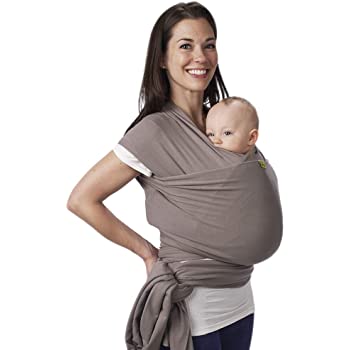When you have a baby with special needs, the general advantages of babywearing – issues of development and comfort – are especially important to you.
Premature Babies

Physical Development. Touch, skin-to-skin contact, helps all newborn babies make the transition to life outside the womb. This is especially important for preterm (premature) babies. According to Dr. William Sears, touch and movement are a “biological regulator” that helps babies balance their irregular rhythms to the patterns of the adult’s regular rhythms.
http://www.askdrsears.com/html/5/t051100.asp
Kangaroo care for preemies. Premature babies in particular need closeness even outside the womb. Keeping a baby snug against bare skin is called “kangaroo care.” (1)(3)
Colic
Less crying. Studies have shown that babies who are carried cry less and that babywearing can effectively be used in colic therapy. (2)
Sensory Integration Disorder
Safe haven. If the world around you is very stimulating, this can cause stress in your baby. With the help of the baby carrier, your arms are your baby’s safe haven. Baby feels secure and calm near you. This is especially important for babies who are over-stimulated.
Soothing for baby. Your movement has a calming influence on your baby. Your baby knows and wants the sound of your voice nearby.
Comforted by people not things. As you become expert and your baby carrier becomes just another parenting tool, it is less about the carrier and more about you and your baby. Your baby will be comforted by people not things.
Developmental delays and special needs
Emotional development. Babies need to feel attached to you. Some may wonder if holding a baby close all of the time makes a baby more clingy. On the contrary, if they can see and touch you when they want to, they are reassured that you will be there when they need you. They will be more confident as it comes time to explore on their own. A toddler will tell you very clearly when it’s time to get down (and back up).
Mental development. A baby who is distressed puts a lot of energy into letting you know. When a baby is busy crying or focusing on what they don’t have, they spend less time observing and learning about their world. A secure baby is quiet and alert, actively curious about whatever you are doing. This stimulation is exactly what babies need for brain development. (4)
Which baby carrier is best for special needs?
Of course, which carrier is best depends on your own baby’s particular needs.
For premature babies (preemies), they might need to be very close to you in kangaroo care. With a Moby Wrap, you might even find that you want to wear it around the house without a shirt. This gives the baby the skin-to-skin contact needed.
For an older baby or toddler, you might find that a structured carrier is best. From talking with the odd customer dealing with these issues, one thing that is usually an advantage is a baby carrier that caregivers can get a child in and out of in a hurry. A structured baby carrier would allow this. A structured carrier would also be the best choice with a big baby because it will provide the most support. Back carrying is generally accomplished successfully with a structured carrier, and parents may like to have this as an option just for more freedom.
For babies with low muscle tone, spinal stress can lead to development of spinal curves. Do no choose a carrier that supports the baby’s weight from the crotch. Choose a carrier that gives the baby full-body support.
Read about more babywearing advantages.
Sources for Medical Studies on Babywearing
- Tessier R, M Cristo, S Velez, M Giron, JG Ruiz-Palaez, Y Charpak and N Charpak. (1998) Kangaroo mother care and the bonding hypothesis. Pediatrics 102:e17.
- Barr RG, McMullan SJ, Spiess H, Leduc DG, Yaremko J, Barfield R, Francoeur TE, Hunziker UA. Carrying as colic “therapy”: a randomized controlled trial. Pediatrics. 1991 May;87(5):623-30.
- Ferber SG, Makhoul IR. (2004) The effect of skin-to-skin contact (kangaroo care) shortly after birth on the neurobehavioral responses of the term newborn: a randomized, controlled trial. Pediatrics 113(4):858-65.
- Pelaez-Nogueras M, Field TM, Hossain Z, Pickens J. (1996). Depressed mothers’ touching increases infants’ positive affect and attention in still-face interactions. Child Development, 67, 1780-92.
